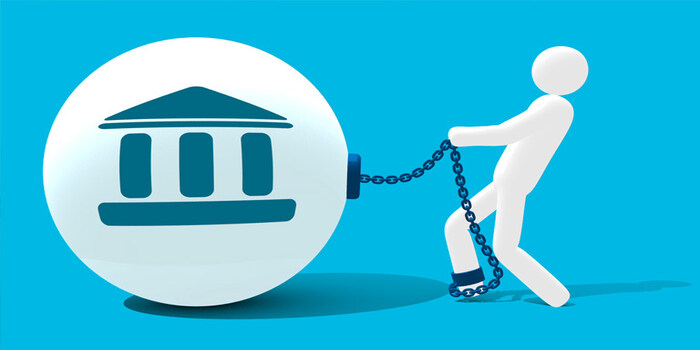How Significantly Do Student Loans Impact Credit Scores?
Oct 04, 2022 By Triston Martin
The impact of student loans on one's credit history and the score is a common concern among those looking into these loans. The short response is yes. Student loans will appear on your credit record like any other debt and affect your score. It's crucial to remain on top of your student loan situation because of the potential consequences of poor management.
The Impact of Student Loans on Your Credit

Knowing that you have an installment loan for your education is important. In the same way, you would pay off a vehicle loan or a mortgage; you would make consistent monthly payments until the obligation is repaid.
This will be recorded as a loan with installment payments on your credit report. If you graduate with student loan debt but make your payments on time and consistently, this will show that you are a responsible borrower and can handle your finances well. If you ever need more financing, this might make you a more attractive borrower.
However, late payments, collections, and defaulting on student loans will all reflect poorly on your credit record and lower your score. It might hurt your future loan applications and financing options.
When Will Your Student Loans Show Up on Your Credit Report?

Applying for a federal student loan will not affect your credit score until you borrow money. However, if you discover that you will still need money beyond what is provided by federal student loans, you may opt to look into private student loans.
If you're getting a rate quotation from a private lender, be sure they're just making a soft inquiry and not a hard one that will show up on your credit record.
After doing some research and finding the best deal, you may submit your application in full. However, it's important to remember that most questions won't decrease your score by more than roughly five points, so they shouldn't have a major impact.
When Can Student Loans Be a Drawback?
As with most loans, neglecting to repay an overdue balance can have serious consequences. The main credit bureaus won't find out about your default on a government loan until you're 90 days past due, so if you're temporarily unable to pay because of an unexpected expense, you have some time to get caught up.
If your loan payment is more than 270 days late, you will be regarded to be in default. There may be a seven-year mark on your credit report if you fail on your student loans.
When a debt goes into default, it can take a long time to rebuild credit. If you owe back taxes, the government can take money directly from your paycheck or withhold it from your federal tax refund. 7
When Can't You Pay Student Loans?
Financial difficulties in paying back student debts after college and entering the workforce are common. If you have problems making your loan payments, you have some choices.
Automatic Repayment Based on Income
Payback plans that are contingent on one's income should be considered. If you have qualified student loans, you may be eligible to switch to a repayment plan that adjusts your monthly payment depending on your income.
When your payments are based on your income, they are deemed "paid as promised." Any payments made while enrolled in one of these schemes will "count" toward the 120 required payments for Public Service Loan Forgiveness. 10
Postponement or Forbearance
You may be able to temporarily suspend payments on your student loans through deferral or forbearance, depending on your circumstances. The two terms, "forbearance" and "deferment," refer to the same thing: the suspension or temporary reduction of your loan payments.
You should expect interest to accumulate during your deferral or forbearance term. This will cause your loan balance to rise and your total interest to increase. 12 As "paid as promised," a delay or forbearance won't lower your credit score.
The Bottom Line
Your credit report will reflect your repayment history for federal and private student loans. As such, making your payments on time and in full is in your best interest. When you are unable to repay your debts, ignoring them is a terrible option. Not paying your bills on time will hurt your credit score and limit your capacity to make sound financial decisions in the future.








